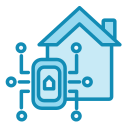Evolving Housing Policies in the Digital Era
Today’s chosen theme: Evolving Housing Policies in the Digital Era. Explore how code, data, and community shape the homes we build, rent, regulate, and protect—then join the conversation, subscribe for updates, and share your perspective.

E-permitting with predictable timelines
Cities are adopting e-permitting portals where applicants track milestones in real time, receive automated reminders, and upload plans securely. When delays happen, clear logs show why and when, building trust and reducing costly uncertainty for communities and small builders.
Algorithmic inspections with human oversight
Machine vision and predictive checks can flag common code violations before inspectors arrive, shortening schedules and improving safety. But every automated decision needs an appeal path, a paper trail, and trained humans ready to override when context outpaces the model.
Smart Homes, Smart Rights
Smart-home policies should require clear, plain-language notices explaining what devices collect, why, and for how long. Tenants need simple off switches and meaningful choices, including the right to refuse non-essential monitoring without penalties or hidden rent increases.
Digital entry systems must include backup physical keys and emergency procedures to prevent illegal lockouts or outages trapping residents. Share your building’s experience and help shape guidelines that keep convenience high while keeping power imbalances and risks in check.
Policies can limit data to what is strictly necessary, anonymize where possible, and mandate deletion schedules. Consider resident-led data committees to audit vendors, review breaches, and publish annual transparency reports that make privacy tangible, not theoretical.

Affordability in the Age of Fintech
Online voucher portals and instant payment rails can cut paperwork and late rent cascades. Pair them with multilingual assistance, eligibility explainers, and human helplines so technology opens doors for families instead of reinforcing bureaucratic dead ends.
Platform Rentals and the Neighborhood
Cities can require platforms to verify license numbers, cap nights, and share aggregated, privacy-safe data. Public dashboards let neighbors see trends, while auditors check compliance without exposing personal details or fueling harassment and misinformation.
Platform Rentals and the Neighborhood
Policies should protect primary-residence hosts and prevent commercial conversions of homes into de facto hotels. Encourage feedback: what rules feel workable where you live, and how can enforcement be proactive without turning every block into a battleground?


Mapping Risk, Guiding Investment
Heat, flood, and housing overlays
Layering hazard maps with housing stock, incomes, and transit reveals where cooling investments, insurance reforms, or buyouts matter most. Invite your community to test maps, flag errors, and demand safeguards against misuse that would penalize vulnerable households.
Resilience standards with funding attached
Digital tools help prioritize retrofits for roofs, insulation, and elevation. Pair codes with grants, not just mandates, so landlords and homeowners can comply. Subscribe for our upcoming toolkit linking climate metrics to equitable financing that actually gets projects done.
Open data without open wounds
Public datasets drive innovation, but sensitive fields can expose renters to discrimination. Policies should redact, aggregate, or defer high-risk details while enabling research, ensuring communities benefit from insight without paying with privacy or safety.
SMS updates, multilingual portals, and pop-up kiosks in libraries or laundromats bring policy into daily life. Encourage neighbors to subscribe for meeting alerts and propose ideas with photos, voice notes, or surveys that welcome every kind of storyteller.

